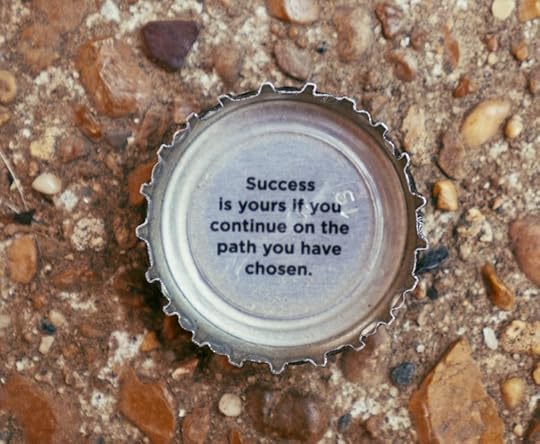How do you know if you’re winning?
Rethinking success before someone else defines it for you
 Photo by Chad Stembridge on Unsplash
Photo by Chad Stembridge on Unsplash#writingcommunity #booksky #amwriting #writing Unfettered Treacle on Substack
How do you measure success? And by whose standard?
For me, one obvious milestone was earning a spot at the U.S. Air Force Academy. By the standards of my younger self, that was the dream. I graduated, went into active duty, and eventually spent thirty-two years flying, twenty of them in the reserves, culminating as commander of a flying operations group. By most accounts, that’s a successful career.
But here’s the catch: I didn’t make full colonel. I retired as a lieutenant colonel, even while sitting in a colonel’s billet. Meanwhile, one of my classmates just retired as a four-star general. Several others made lieutenant general. By comparison, I could frame my career as “falling short.”
That’s the trap we all face: measuring ourselves against someone else’s scoreboard.
The truth is, I don’t know what my classmates had to sacrifice to reach those ranks. I can guess, family time, most likely. I chose differently. I tried to maximize family while still accepting that deployments and long hours were part of the deal. I loved flying jets, and my wife tolerated the chaos. That was our tradeoff.
After retiring, I became a simulator instructor. Within a few years, I was running the site. Solid work, steady results. Not flashy, but it mattered to the people I taught and the pilots I helped shape.
Now I’m a full-time writer. My last published book was in 2021, not exactly a prolific streak. Since then, I’ve written three short stories and two novels, but they’re not on shelves yet. Does that mean I’m failing? Or does it mean I’m still in the middle of the story?
Years ago, an artist at a convention ask a question that stuck with me: What would success look like to you?
Is it a traditionally published book with your name on the spine in Barnes & Noble?
Is it complete control of the process and a shelf full of indie titles with your imprint on them?
Is it praise for your prose, respect from your peers?
Or is it simply making a good living from your words, enough to pay the bills and keep going?
There isn’t a wrong answer, but if you don’t define it, someone else will define it for you.
Here’s the larger point, success isn’t a universal yardstick.
We can’t all be Travis Kelce or Taylor Swift. They’re thoroughbreds, outliers way out on the far end of the talent curve for their chosen fields. If you measure yourself against the most successful person in your profession, you’ll almost always come up short. Worse, you’ll ignore the wins you’ve already built.
And even for the outliers, there’s a cost. You don’t get to the far end of the bell curve without giving something up, time, privacy, relationships, health. The question isn’t whether you could chase that level of success, but whether you’d want the trade that comes with it.
So how should you measure success?
Here’s my working definition:
Success is aligning what you achieve with what you value.If you value career above all, maybe the brass ring is worth the climb. If you value family, relationships, creativity, or freedom, then success might look very different, and that’s not a downgrade. It’s a choice.
By my measure, I raised four kids into remarkable adults with college degrees, and they’re all wonderful additions to the human race. I have a marriage I’m grateful for. I live in a comfortable home. I get to write every day. That doesn’t look like a general’s retirement ceremony, but it looks like success to me.
So, the next time you feel the urge to stack yourself up against someone else, stop and ask:
What do I actually value?What am I willing to trade to get more of it?When I look back, what will I want to have carried with me?There are no free lunches. But you do get to choose the menu.



